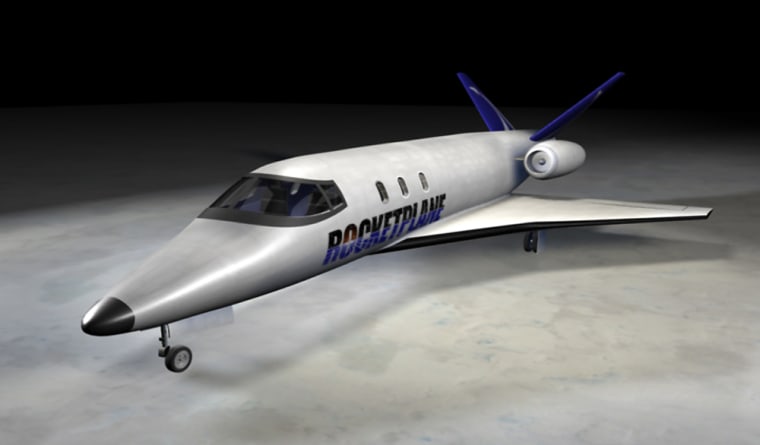After months of debugging, a Texas economist-turned-entrepreneur has taken the wraps off SpaceShot, an online weather-prediction game that offers flights to the edge of outer space as the top prizes.
The venture represents a novel strategy to capitalize on private-sector spaceflight — not by building the spacecraft themselves, but by parlaying public interest into a moneymaking competition with an out-of-this-world payoff.
“When I was a child, we were promised space would be for everyone,” Dinkin said in Monday's opening-day announcement. “SpaceShot will be the first to deliver on that promise.”
SpaceShot isn't the only player in the space contest market: Two other private space companies, British-based Virgin Galactic and Virginia-based Space Adventures, already have given away suborbital flights through promotional sweepstakes. What's more, Virgin Galactic has been working with a sister company, Virgin Skill, on an online game that may eventually offer a spaceflight prize.
However, Dinkin's venture is the first to start taking money specifically for shots to win a ride into space.
Bracketology meets meteorology
Here's how the game works: For $3.50 a play, users lay down their predictions for the next day's weather in New York's Central Park, as recorded by the National Weather Service: high and low temperature, precipitation and humidity.
Users are paired off against each other on "Level 1" of the competition, and the one whose prediction is closer to the mark can advance to the next level for another play — sort of like the NCAA's "March Madness" basketball tourney.
In this case, the winners must move up through more than three times as many levels of competition — 17 levels, to be exact. It's also possible to start on a higher level of the brackets by paying more money. For example, $150,000 will get you right up to Level 17.
The single-elimination games lead up to one big prize: a flight on Oklahoma-based Rocketplane's yet-to-be-built suborbital spaceship (valued at about $200,000), plus an extra $100,000 to cover taxes and other expenses. The winner also could opt for a $150,000 cash payout — although as time goes on, that figure may be adjusted.
"I'm worried it's too high," Dinkin said of the alternate grand prize, "but I figure it's a good place to start."
Each tournament effectively has to attract the equivalent of 131,072 Level 1 entries, Dinkin said. However, all the predictions need not be registered on the same day.
"My invention here is to allow us to decentralize that," he told MSNBC.com. If hundreds of thousands are playing each day, the contest could potentially wind up in 35 days. However, Dinkin said, "If the tournament goes slow, the first person to Level 17 may be waiting awhile."
Waiting for a space ride
The winners also will be waiting awhile for their date with weightlessness: Rocketplane's current schedule calls for commercial flights to begin in 2007, but its spaceship is still under development. It's not yet certain whether any suborbital spaceships will be ready to fly in the next couple of years.
"If no one's available by 2009, then I might just write a check," Dinkin said.
Another issue has to do with SpaceShot's legal status. The company carefully characterizes the weather-prediction competition as a skill game, and not dependent on chance. That's because games of chance are subject to many more restrictions or even outright bans. However, it will be up to each state to decide whether it agrees with SpaceShot's point of view.
"If any attorney general give me a call and says 'lock out my state,' I would have to lock them out," Dinkin said, most likely by rejecting credit-card registrations from that state.
Dinkin said SpaceShot has contracted with Rocketplane for hundreds of flights, worth tens of millions of dollars. He hopes that the venture will stimulate a suborbital travel boom, not only for Rocketplane, but also for the personal spaceflight industry as a whole.
"I would like to see a suborbital spaceflight provider within three hours of every major metropolitan area," he said.
The venture's Web site is at . "We should have a sign up saying that our regular hours of operation are from 6 a.m. to 11:59 p.m. Eastern Time, with extended hours as available," Dinkin told MSNBC.com. Dinkin writes about SpaceShot's genesis in Monday's issue of .
An earlier version of this report misstated the minimum amount of time in which a full competition could be finished.
